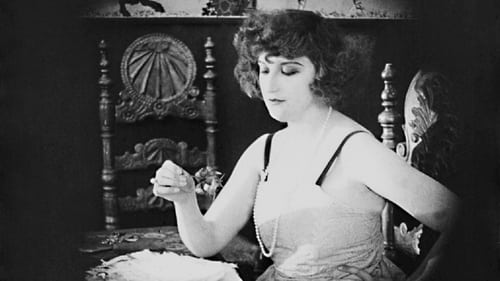
20년대 가장 중요한 감독 중 한명인 뒬락은 ‘순수영화’의 가치를 옹호했다. 움직임과 이미지만으로 구성된 영화를 꿈꾸면서 내러티브에 매달리는 영화를 거부하고 움직임의 시각적인 조화에서 영화의 순수한 가능성을 찾으려고 했다. 는 보들레르의 시를 이미지로 옮긴 듯 한 영화다. 시의 운율은 영화 속 이미지와 움직임의 조합을 통해 리듬감으로 구체화된다. 또한 이 제목은 영화 속의 주요 공간인 선실 모양의 BAR 이름이기도 하다. 이곳에서 주인공은 무료한 중산층 여성의 삶과 대비되는 여행을 꿈꾸게 되는데, 바다로 상징되는 다른 삶을 일렁이는 바다의 이중노출, 분할 화면 등을 통해 시각적으로 구체화시킨다. 작은 배 모형에 적힌 이 제목이 세 번째 등장할 때, 그녀의 보잘 것 없는 일상은 ‘모든 것이 질서와 아름다움, 호화와 고요, 그리고 쾌락 뿐.’이라는 보들레르의 시구와 자연스럽게 연결되면서 시적인 감흥과 시각적 이미지가 만나는 경험을 제공받는다. (부산시네마센터 2011 - [개관영화제]백화열전)

Comtesse Sâti
A doctor researched the duplication of personality , and found in the person of René de Varennes, who had attempted suicide, a subject of study.

Lola de Sandoval
"Taking its title from John Keats’s early 19th-century poem, this highly personal melodrama finds Dulac interrogating the archetype of the femme fatale. La belle dame sans merci follows a famous actress who was once seduced and abandoned by a rich man and subsequently resolved to become a “merciless woman,” forever scheming to hurt others (men in particular) in a ruthless yet captivating manner. Dulac challenges the Romantic archetype embodied in Keats’s poem by way of symbolist mise en scène, self-reflexive narration, and her typically associative approach to editing, locating a modern ambiguity within the stereotypical figures of 19th-century art." - Film Society of Lincoln Center


Marie Pasque, known as Simplette, lives in an uneventful life in her Provence village. Her godmother, Madame Rouvière, is fond of her and desires only that she marries her nephew, Robert. When she dies, Rouvière leaves her fortune to Robert on the condition that he takes Marie as his wife. Unfortunately, Robert is already in love with an actress. To save his company from financial ruin, Robert is forced to marry Marie, but as soon as he has received the first half of the inheritance he returns to his former mistress. Marie is still in love with Robert, and she uses the other half of Madame Rouvière's inheritance to help her husband's company survive another financial crisis. When he hears of this, Robert decides to return to Marie but he arrives too late.



